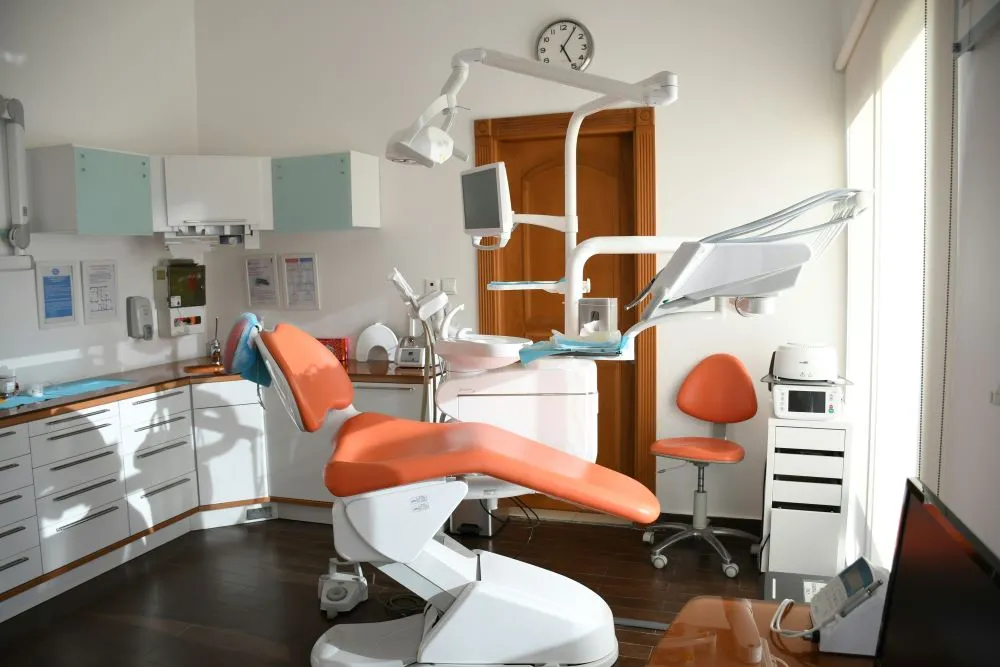Dental Checkups' Role in Cancer Prevention & Early Detection

Image by Atikah Akhtar for Unsplash
Dental checkups aren’t just good for our pearly whites. Here’s why the dentist can be an essential part of our healthcare team, from early cancer detection to supporting cancer care after a diagnosis.
What comes to mind when you think of dental checkups? The high-pitched buzz of a tooth polisher? That minty scent of the polishing paste? Or maybe a lecture on flossing?
Dental checkups aren’t something most people look forward to getting. But many people appreciate how they feel at the end of their visit, be it a brighter smile or reassurance about their oral health. And oral health is an important part of our overall health.1
Did you know that dental checkups can also play a role in cancer prevention and early detection? Or that dental care can be important after a cancer diagnosis?
Here's what to know:
What does an oral cancer screening entail?
Currently, there is no established routine oral cancer screening test. But many dentists will do a visual oral cancer screening during routine dental exams to check for signs of oral cancer and precancers. The dentist will check your mouth and tongue for things like lumps, swelling, and sores. They may also feel your jaw and neck.2,3,4
What happens if the dentist finds signs of oral cancer?
If your dentist sees anything concerning, they may perform a biopsy or refer you to an oral cancer specialist.3 A specialist can do thorough diagnostic testing, including imaging tests and biopsies.
How Is Oral & Lip Cancer Diagnosed?
How often are dental checkups needed?
The American Dental Association (ADA) recommends seeing the dentist regularly. The often-cited recommendation is twice a year. But the ADA notes that it can vary by person. Once or twice a year might be enough for some people.4 Others might need to get dental checkups more often, depending on their unique needs.4 For example, if someone has a greater risk for oral disease, they may require more frequent dentist visits.
Risk factors for oral cavity cancer and lip cancer include:
- Using tobacco products
- Heavy alcohol use
- Being exposed to natural or artificial sunlight for long periods
- Being infected with HPV (human papillomavirus)
If you are not sure how often you should get dental checkups, talk with your healthcare provider to see what’s best for you.
Does dental insurance cover the cost of oral cancer screening?
Generally, oral cancer screenings are considered preventive services. So, many dental insurance plans cover these screenings as part of routine dental exams. If you are not sure, contact your insurance company to confirm what your dental policy covers.
Likewise, if you aren’t sure whether your dentist does oral cancer screenings, ask. Some dentists may do it only by request. And always let your dentist know about any questions and concerns you have about your oral health.
Learn more about dental checkups and oral cancer screening.
What are the symptoms of oral cancer?
Even if you are getting regular dental checkups, it’s helpful to know the signs and symptoms of oral cancer. These may include:
- A sore on the lip or in the mouth that doesn’t heal
- A lump or thickening on the lips or gums or in the mouth
- A white or red patch on the gums, tongue, tonsils, or lining of the mouth
- Bleeding, pain, or numbness in the lip or mouth
- Change in voice
- Loose teeth or dentures that no longer fit well
- Swelling of the jaw
- Trouble chewing or swallowing
- Sore throat or feeling that something is caught in the throat
If you experience any potential signs or symptoms, schedule an appointment with your doctor as soon as possible.
Why can dental care be important for cancer patients?
Cancer and cancer treatment can affect the mouth in different ways. The National Cancer Institute (NCI) notes that oral complications are common in cancer patients, particularly people with head and neck cancer.5 Getting dental checkups may help minimize oral side effects of chemotherapy and radiation treatment, like dry mouth.5,6
Ask your cancer care team about their dental care recommendations and concerns. Should you visit a dentist before you start treatment? How soon? Are there any special considerations you should discuss with your dentist? If you will be receiving treatment for head and neck cancer, your oncologist will likely work with your dentist as part of your care plan.5
What Are Potential Mouth & Throat Side Effects of Treatment?
Preventing and controlling oral complications can help you continue cancer treatment and have a better quality of life.
“Oral Complications of Chemotherapy and Head/Neck Radiation”
What can I do if I don’t have dental insurance?
If you don’t have health insurance but need to see a dentist before your treatment starts, you have a few options:
1. Ask your local hospital if they have a free dental clinic.
2. Reach out to an oncology social worker. They may be able to connect you with free dental resources.
3. Call our Cancer Support Helpline at 888-793-9355 for free, personalized navigation. Our Helpline's experienced navigators and resource specialists can address your cancer-related questions and concerns.
Looking for more ways to kick off a healthy dental routine before cancer treatment begins? The American Dental Association shares suggestions, including brushing & rinsing tips and foods to eat.
References
1. Centers for Disease Control and Prevention. “Dental Care Utilization Among Adults Aged 18-64: United States, 2019 and 2020.” Last reviewed: April 18, 2022. CDC.gov.
2. Alexander, Heather. “How your dentist can help with oral cancer prevention.” MDAnderson.org. August 2020.
3. Mayo Clinic. “Oral cancer screening.” Nov. 15, 2023. MayoClinic.org.
4. MouthHealthy | American Dental Association. “Your Top 9 Questions About Going to the Dentist―Answered.” MouthHealthy.org.
5. National Cancer Institute. “Oral Complications of Chemotherapy and Head/Neck Radiation (PDQ)—Patient Version.” Cancer.gov.
6. MouthHealthy | American Dental Association. “Cancer and Dental Health.” MouthHealthy.org.